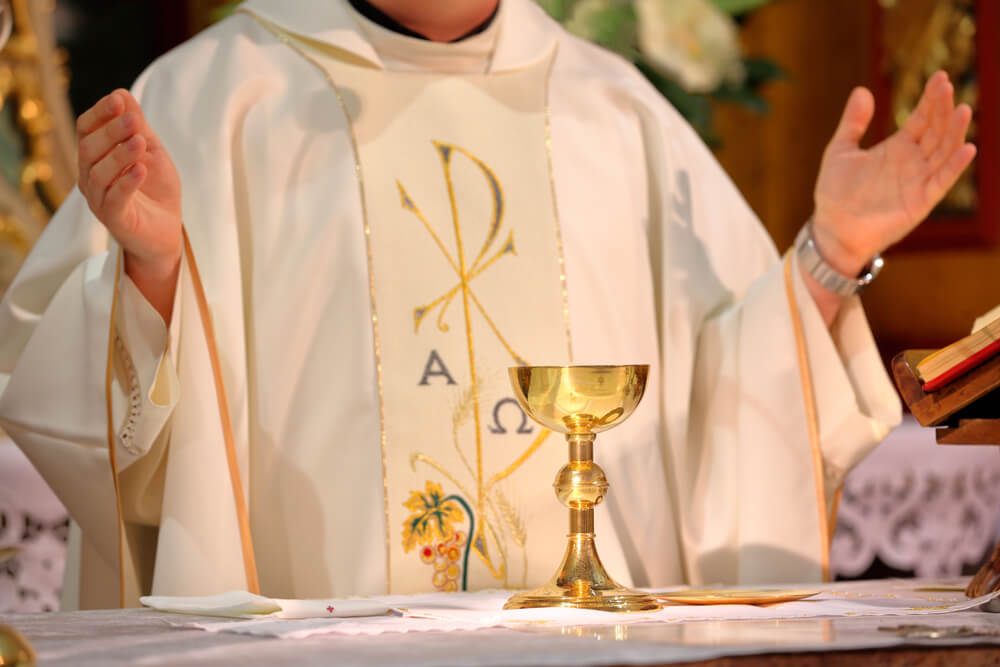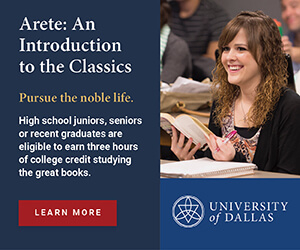In today’s Second Reading from the book of Hebrews, we hear You are a priest forever according to the order of Melchizedek. But many of us hearing this don’t know who Melchizedek is, what significance he has in Scripture, and what significance he has for the priesthood today.
Dr. Scott Hahn, founder and president of the St. Paul Center for Biblical Theology, stopped by A Closer Look™ recently to discuss the priesthood. During his conversation with host Sheila Liaugminas, he addressed the meaning behind today’s Second Reading from Hebrews.
“The book of Hebrews in the New Testament speaks of Christ as being a priest after the order of Melchizedek,” Dr. Hahn said. “So, you go back to the patriarchal period in Genesis. Melchizedek appears in Genesis 14, and it is the first place where you find anybody being called a priest. He’s the King of Salem, but he is also the priest of God most high. And to him Abram pays his tithes, and from Melchizedek Abram receives a sacrificial offering of what? Bread and wine.”
But the significance of Melchizedek is not only that, like Jesus and our priests today, he made a sacrificial offering of bread and wine. Dr. Hahn gave context to this scene by asking, “Now, why would you have a priest in Genesis? Because it is the patriarchal period. So who are the people building altars, offering sacrifices, saying prayers, and giving blessings? They are the patriarchs, the fathers. As well as their sons, especially their first-born sons, which is why the author of Hebrews says, in Hebrews chapter 5, You are a priest forever, after the order of Melchizedek. Just as it says, You are my Son, today I have begotten you.”
“It’s the father-son relationship that goes all the way back to the beginning,” he explained. “In the natural family, the patriarchs of course were mortal, and so when they died the family was threatened with disunity. So who would reunite the family? Quite likely the oldest brother, the first-born son. And this goes all the way through the 50 chapters of Genesis – the patriarchal period, the patriarchal family, and the patriarchal priesthood.”
Dr. Hahn further explained that after the Israelites worshiped the golden calf, there was a rupture in the order of the priesthood being centered on fathers and their first-born sons. Because the fathers and sons did not give their faithful obedience to God after the golden calf incident, the Levites were then ordained as priests for Israel.
“For the rest of the Old Testament, the Levitical priesthood is this interim arrangement,” Dr. Hahn said. “Until what? Well, until the new covenant when God the Father sends the divine first-born to become a human. To not only restore the human family in its natural form, but to elevate us to share God’s fatherhood and Christ’s own divine sonship in a new covenant, which is still new 2,000 years later because it is a new and eternal family covenant.”
While this background provided by Dr. Hahn offers context for this Sunday’s readings and sheds more light on God’s plan of salvation, some may find it abstract, with no real relevance for our lives today. Dr. Hahn shared why this passage from Hebrews should actually help us understand the priesthood, and specifically the role of spiritual fatherhood, better.
“We find something not abstract, but concrete and personal, and interpersonal,” he said. “The covenant is a family. The family in the old [covenant] was human, but the family in the new [covenant] is divine.”
“To be a father is not just a physical task, but a spiritual task. And to be a priest is not just a spiritual task, it’s really spiritual fatherhood. It’s discipline, it’s governance, it’s inspiration, it’s leadership, it’s mercy, and forgiveness. All the things that I have done with my six kids, I now see my kids doing with my 15 grandkids. And this is the model of the priesthood.”
Dr. Hahn explained that recognizing the role and significance of spiritual fatherhood is something that will help priests as they serve the Church. “This is the message that, to be honest, I have a fiery passion to share to our priests,” he told Sheila Liaugminas. “I have two sons in the seminary, and so I am deeply invested in this as well. Jeremiah and Joseph are preparing to be priests for the Diocese of Steubenville, and they have heard this a lot. That just as I am a father not 9 to 5, because it isn’t a job it’s a vocation. And I think this is what we have to show our priests. Not to just teach them in an exciting way, but to honor them as we honor our fathers and mothers.”
Listen to the full conversation with Dr. Scott Hahn below:
A Closer Look airs weekdays at 6:00 p.m. Eastern/3:00 p.m. Pacific on Relevant Radio® and the Relevant Radio App.


